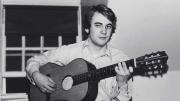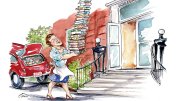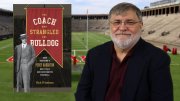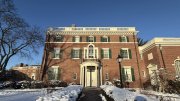Old dogs, new tricks. By his own account, William Randall ’72 had an ambivalent relationship to the College. “Harvard,” he wrote some decades ago, “haunts me like a perpetually unappeasable parent….[H]ad I been less intimidated the first time around, might I have soaked up its resources (intellectual and relational) in a more relaxed, and deeper, manner? I wonder.”
A gerontologist at St. Thomas University, in Fredericton, who studies aging biographically (how people understand and tell their life stories) rather than biologically, he has, inevitably, written about his own path to Cambridge, from the village of Harvey Station, in New Brunswick, Canada, where he grew up. At this year’s reunion events and Alumni Day, on June 2-3, Randall found his relationship to Harvard, and his story about it, changed in ways he hardly expected. Those are the kinds of reunion experiences that are never fully accessible to outsiders, so it is a gift to have the inner effects made available in the words of those who live them. From Randall’s account:
While I found the entire reunion to be a powerful—even transformative—experience personally…I would even say that it effected a re-gendering of my sense of Harvard overall. Let me explain…
Like many classmates, especially those of us from small rural communities…I arrived on campus with an “impostor syndrome” that was solidly entrenched.…And the following years of scurrying and scrambling and trying to survive did little to allay it. When I graduated with my modest cum laude, I was proud, to be sure, but more proud of myself for making it out alive than of Harvard per se. Harvard has loomed over my life as a distant, lofty presence that holds enormous expectations of its offspring, expectations that I haven’t—and never can—live up to. True, at my 25th reunion, it was great to see old friends who, like me, had made it through those fraught four years. But Harvard itself still failed to live in my heart in anything approaching a “warm and fuzzy” fashion.
It sounds melodramatic to say this, I realize, but the reunion…turned that state of mind around in something of a seismic manner. Not only did I connect on a deepened and more soulful level with those same old friends, not to mention several other classmates whom I met for the very first time, but I sat through these events more engaged than I’d ever felt before with Harvard itself—the place, the history, the mission, and that huge, extended family of 400,000 fellow alumni worldwide. It’s like I’ve finally begun to understand the nostalgia and affection that others have told me they experience whenever they think of their own alma mater—a term that I learned from Google (!) means “nourishing mother.” The shift from Harvard as alma pater, so to speak, to Harvard as alma mater is for me a most welcome development, and going forward, I suspect, may prove to be profound.
As a professor of gerontology…I’m aware that aging itself tends to render us more mellow, more down-to-earth, more appreciative of the so-called “little things” in life. But it can also bring with it a significant re-working—or re-storying—of the big things too, including that poignant chapter in each of our pasts, and thus our identities, called “Going to College.”
That was the case for Randall this past June—an emphatic example, beneath all the events and surface hoopla of reunions, that Harvard graduates can be lifelong learners in powerful ways, even about their own youthful immersion in higher learning.
Summer schooled. Houghton Library has made great efforts to be more accessible to users: physically (gracefully landscaped ramps that lead to the entry), within (new lobby gallery spaces), and online (for its exhibitions). An early, if unexpected, sign of success appeared on the brilliant morning of June 21, two hours and 55 minutes after the summer solstice. One of the resident campus wild turkeys, a striking hen, made her way up the southerly ramp, escorted fore and aft by two cheeping chicks, obviously eager to get at their lessons for the day—perhaps consulting the John James Audubon Collection? The first lesson may have been schooling in patience (the doors don’t open until 9:00 a.m.), but it is encouraging at any hour to encounter fresh evidence that Harvard remains, first and foremost, a community of learners. vprimus vi









